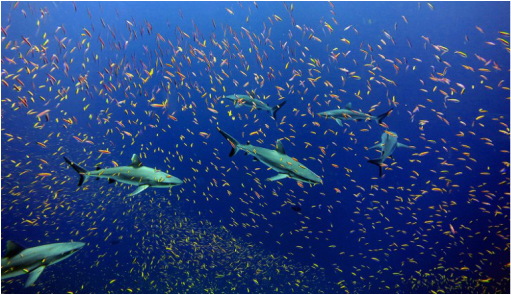Objectives
- Synthesize and interpret Pacific Reef Assessment and Monitoring Program (RAMP) data to better understand the current environmental and ecological conditions of, and threats to the PRIMNM.
- Develop management recommendations based on the findings to assist managers in the development of the management plan.
- Enhance public awareness, education, and appreciation of coastal marine ecosystem health and the long-term conservation of coral reef ecosystems globally.
Goal
This project aims to help inform future management decisions for coral reefs in the Pacific Remote Islands Marine National Monument (PRIMNM) by determining the ecological health of, and threats to corals reefs in the PRIMNM. Through this analysis, resource managers will better understand how global threats linked to human activity (i.e. climate change, ocean acidification) affect corals in the relative absence of other direct human disturbances. The results of this project can further serve as a comparison tool for reefs heavily impacted by human disturbance today as well as those that will be impacted by climate change in the future.
In addition to providing a tool for resource managers, this project seeks to enhance public awareness, education, and appreciation of coral reef ecosystems. The team will develop various outreach materials to ensure that the general public gains insight into how coral reefs are impacted by humans, while gaining broader awareness of the global threats to these sensitive ecosystems.
Headline Photo Source: USFWS
In addition to providing a tool for resource managers, this project seeks to enhance public awareness, education, and appreciation of coral reef ecosystems. The team will develop various outreach materials to ensure that the general public gains insight into how coral reefs are impacted by humans, while gaining broader awareness of the global threats to these sensitive ecosystems.
Headline Photo Source: USFWS

